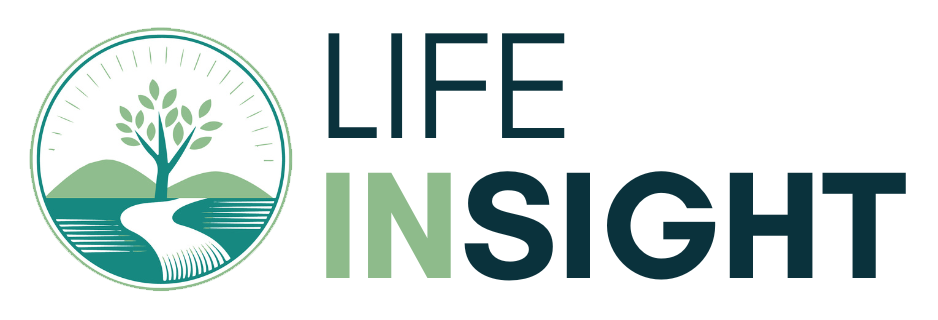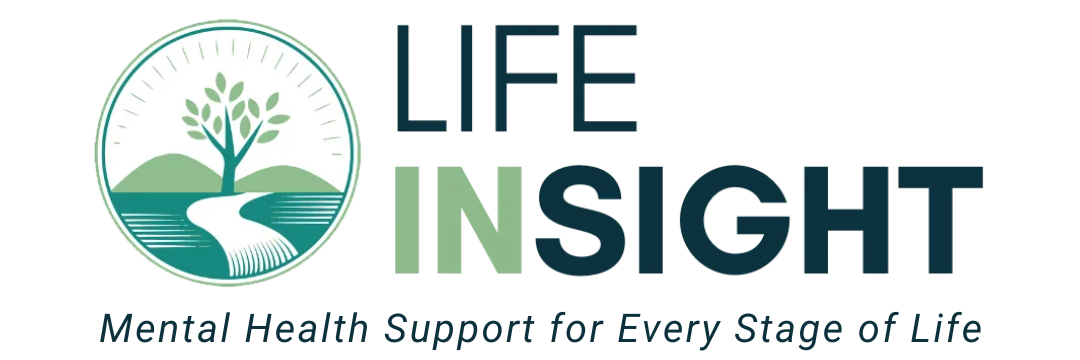How Cognitive Behavioral Therapy (CBT) and Exposure Response Prevention (ERP) Can Help Adults with OCD
Life InSight
Obsessive-Compulsive Disorder (OCD)
can be exhausting and disruptive, affecting a significant part of life for adults who struggle with it. For those in Bergen County dealing with OCD, Cognitive Behavioral Therapy (CBT) – specifically, a method called Exposure Response Prevention (ERP) – is a proven effective approach and understanding how CBT and ERP work can help you decide if this path might be the right fit for managing your OCD symptoms and improving your quality of life.
Benefits of CBT and ERP for Adults with OCD
Breaking Down OCD and Its Impact
OCD is a mental health condition where intrusive thoughts, or “obsessions,” can lead to repetitive actions or “compulsions” meant to relieve anxiety. However, these behaviors usually bring only temporary relief, causing the cycle of obsessions and compulsions to repeat. Common OCD themes include contamination fears, worries about harm, a need for perfection, or disturbing intrusive thoughts. For many adults with OCD, these patterns can disrupt work, relationships, and personal well-being.
How CBT Works for OCD
Cognitive Behavioral Therapy, or CBT, has long been a trusted treatment for OCD. CBT is based on the idea that thoughts, feelings, and actions are all connected. By identifying negative thought patterns and learning healthier responses, people with OCD can reduce the grip these patterns have on their lives. CBT focuses on rethinking automatic negative beliefs and teaches practical ways to manage anxiety, which can lessen OCD symptoms over time.
The Role of Exposure Response Prevention (ERP)
ERP is a specialized form of CBT and is known to be particularly effective for OCD. In ERP therapy, individuals work with a therapist to gradually confront situations that trigger obsessive thoughts. Instead of responding with compulsive behaviors, they learn to sit with the anxiety and let it pass without giving in to compulsions. This process, over time, retrains the brain to see that the feared outcomes often don’t happen, and even if discomfort arises, it is manageable.
For example, someone who fears contamination may avoid public places or wash their hands compulsively. In ERP, they might gradually expose themselves to these feared situations without washing excessively afterward. As they practice sitting with their anxiety, the intense need to “fix” it through compulsions usually begins to fade.
Why ERP is So Effective for OCD
ERP is unique because it tackles both the thought and behavior sides of OCD. By repeatedly facing a fear and resisting the compulsion to act, people with OCD learn to tolerate their anxiety without falling back on compulsions. The process, known as “habituation,” helps reduce both the power of obsessive thoughts and the urge to respond compulsively. For many, this approach is empowering because it shows they can manage their anxiety and live without their OCD dictating their actions.
What to Expect in CBT and ERP Therapy in Bergen County
If you’re in Bergen County and seeking OCD treatment, our therapists are able to offer CBT and ERP in-person, using in-vivo exposures. Therapy sessions are often structured to address your specific symptoms and triggers, helping you practice techniques that allow you to manage these patterns outside of the therapy room. Sessions may include:
- Identifying Triggers and Patterns: First, the therapist will help you explore the situations or thoughts that set off your OCD cycle.
- Exposure Practice: Gradual exposure exercises allow you to confront your triggers in a manageable way.
- Response Prevention Techniques: The therapist will guide you through resisting the urge to perform compulsive behaviors, helping you build new responses.
Therapy often includes “homework” assignments to help you practice exposure exercises in real-life situations, reinforcing the skills learned in sessions.
Benefits of CBT and ERP for Adults with OCD
- Better Day-to-Day Functioning: Reducing obsessions and compulsions allows people with OCD to experience more freedom and flexibility.
- Increased Emotional Resilience: CBT and ERP help individuals build coping skills to handle anxiety more effectively over time.
- Greater Sense of Control: By learning how to face fears and manage urges, people with OCD gain a new sense of control over their thoughts and actions.
- Lasting Results: CBT and ERP provide tools for lifelong management of OCD, which can be more sustainable than relying solely on medication.
Seeking OCD Treatment in Bergen County
For those in Bergen County ready to explore treatment options for OCD, reaching out to Life InSIght, with expertise in CBT and ERP, can be a significant first step. We will match you with the right therapist who can offer a structured, supportive environment to work through your challenges and build confidence, as well as the skills to manage OCD symptoms in everyday life.
With CBT and ERP, many people find they can reduce the hold OCD has on them, allowing them to live more freely. If you’re ready to take that first step toward managing OCD, consider connecting to a Life InSight therapist who specializes in these proven methods for OCD treatment.

Every April, Autism Awareness Month invites us to reflect—not just on challenges—but on opportunities. One of the most powerful, lasting investments we can make in a child's future is helping them build meaningful social connections. For kids and teens on the autism spectrum, the social world can be hard to navigate. Understanding unspoken rules, reading facial expressions, or knowing how to join a conversation doesn't always come naturally—and those gaps can impact friendships, confidence, and even independence. That's where social skills support comes in. Why Social Skills Support Is Essential Social success isn't just about fitting in. It's about understanding how to connect—and having the confidence to try. Many kids on the spectrum want to make friends but aren't sure how. Others may shy away from social situations because they feel unsure or overwhelmed. Unfortunately, traditional therapy or school settings don't always offer focused support for these challenges. A structured social skills program creates space to slow things down, practice key behaviors, and build relationships in a supportive, low-pressure environment. What Social Skills Programs Look Like Life InSight's social skills programs are built around real-life situations and age-appropriate goals. These aren't lectures. They're active, hands-on sessions where kids learn by doing—together. Here's what that might look like: Small group settings where peer modeling happens naturally Role-playing everyday situations like ordering food or joining a game Practicing turn-taking, conversation starters, reading body language, and managing conflict Opportunities to use new skills in real-world scenarios—with support These moments might seem small, but they build toward something bigger: the ability to connect, adapt, and thrive. Who Can Benefit Most While every child is different, we've seen social skills programs be especially valuable for: Kids who've been recently diagnosed and are starting their care journey Children moving into a new school phase (elementary to middle school, etc.) Those struggling with friendships, isolation, or anxiety in social settings Families whose IEPs or school supports aren't fully addressing social needs Even a few sessions can help unlock confidence and make group settings less intimidating. Why It Matters Long-Term When kids feel competent socially, it changes everything. They engage more in school. They experience less frustration and fewer behavioral outbursts. Their self-esteem grows. And perhaps most importantly, families feel more hopeful about their child's ability to build meaningful relationships—now and into adulthood. This Autism Awareness Month, let's commit to more than awareness. Let's take action. If you think your child could benefit from structured social skills support, we're here to guide the way. Let's build a connection—together.




